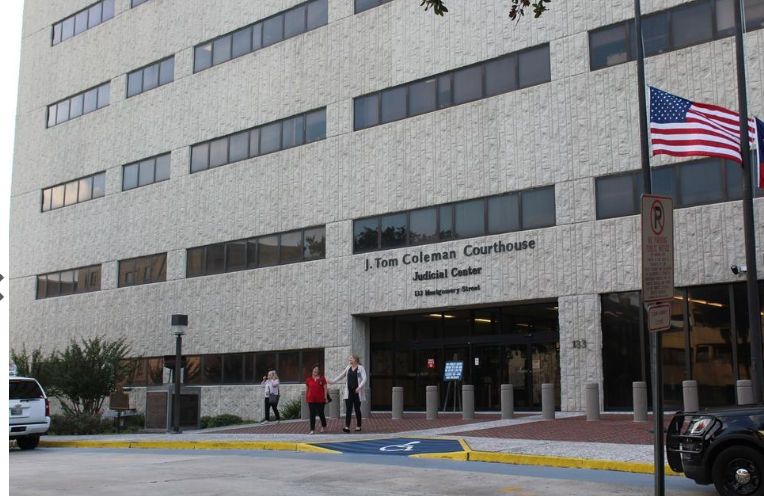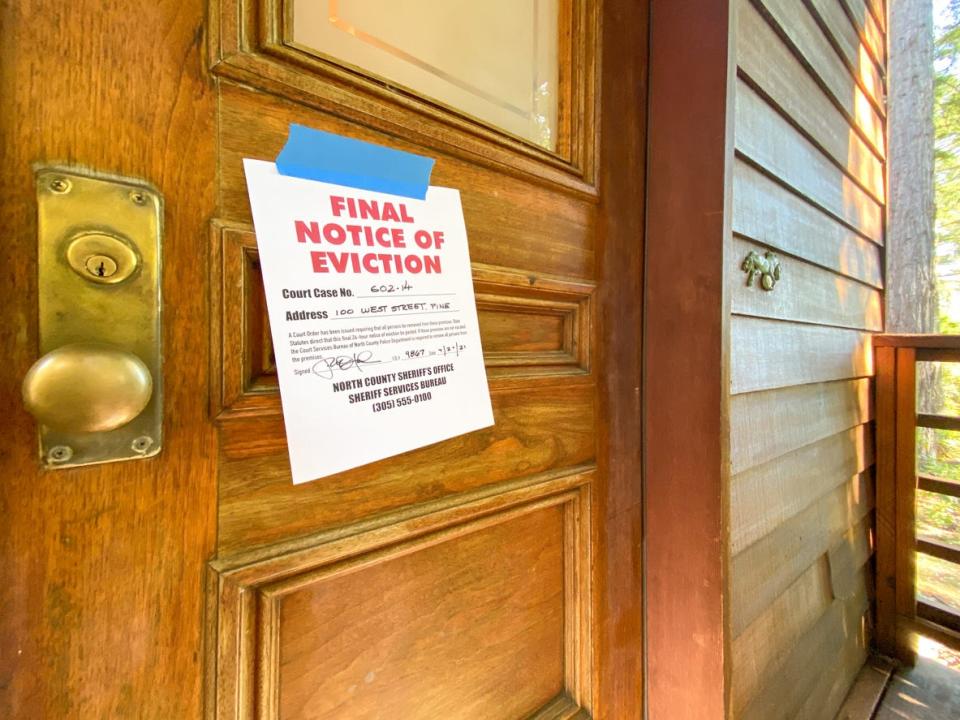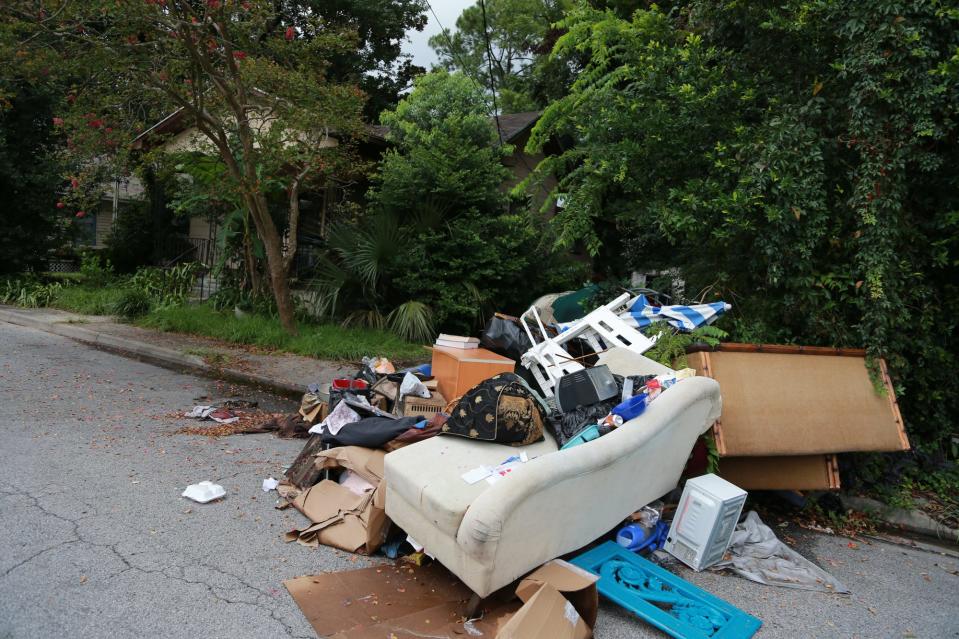Thousands of evictions filed in Chatham County since CDC moratorium ended

The courtroom was full by 8:50 a.m. Clerks have gotten smart over the course of the fall. They tell folks on the morning docket court starts at 8:45 a.m. when it really starts at 9.
The judge's chair sat empty as a Chatham County Sheriff's Deputy stood in front of nine packed rows and recited the rules: turn your phones off, keep your hands out of your pockets, keep your face mask over your nose.
About half an hour into the docket, Judge Mary Kathryn Moss issued another rule when a woman spoke out of turn: "If you can't control yourself, the court will control you,"
Nineteen cases were heard over the course of an hour. All but five (which were dismissed) resulted in the judgements that sided with landlords. Welcome to eviction court.
The Centers for Disease Control's moratorium on pandemic-related evictions ended on Aug. 27, allowing landlords to begin the eviction process for tenants behind on rent because they lost a source of income due to the coronavirus. Since the lift, 2,111 new eviction cases have been filed in Chatham County, according to Magistrate Clerk Tracie Macke.
Resource Guide: What to know if you're facing eviction in Chatham County
"We were breathless," Macke said of the six weeks the courts spent clearing the cases stalled by the CDC moratorium, which they cleared by September's end.
But as one crisis is cleared, another looms. Lawyers with Georgia Legal Services, a nonprofit firm that provides legal help for those who cannot afford it, said the financial issues wrought by the COVID-19 pandemic haven't gone away, leading to a continued glut of evictions in Chatham County and the 11-county region the organization serves in the Coastal Empire.
On the Tuesday before Thanksgiving, all 14 tenants who were issued eviction notices owed amounts less than $3,000.
Once the judge ruled in favor of their landlords, tenants have seven days to pay the money back. On day eight, evictions can begin. "It's an all or nothing statute," Moss told a plaintiff who owed her landlord $1,837.
More: Step Up Savannah's survey reveals sobering portrait of poverty, gaps in services
The plaintiff was waiting on Emergency Rental Assistance funds, which are distributed by the county and state and available for people who lost income due to the pandemic. If it takes eight days for the ERA funds to come in, the landlord can still evict the tenant. "Best of luck," Moss told the woman as she called the next case to the bench.

But getting ERA funds within a week is nearly impossible right now, according to Shaina Thompson, housing lawyer for Georgia Legal Services. The county only takes 25 cases a week. Its slate is usually full by 8:10 a.m. Monday morning, ten minutes after the phone lines for applications open. The state Dept. of Community Affairs distributes funds, Thompson explained, but the wait list is longer for the statewide program. The federal funds come with a lot of requirements and "hoops to jump through," Thompson explained, which means distribution staff are burdened with a stack of paperwork for each client.
"That's where you're having those issues. And for landlords that are here, if they are not familiar with the ERA program that have the longer waits, they feel like it's a scam," Thompson said. "And they're not willing to wait."
Thompson said improving relationships with landlords has been her biggest push. Many landlords haven't been paid in months, or even years, and their trust in the programs, and their patience, has worn thin.
From August: Eviction moratorium extension delays inevitable pain for tenants, landlords
"They haven't been paid in over a year, and so asking them to wait another two or three months with a promise that they will get paid," Thompson said. "They've been hearing that for a long time. And so I think that that's the issue there."

Bill Broker, managing attorney for Georgia Legal Services' Savannah office, said he's also seen a lack of compassion from landlords and the general public when it comes to renters behind on payments.
Most people experiencing extreme poverty live in what nonprofit Step Up Savannah calls "the tyranny of the moment." Thompson explained the concept like this: If a mother has to miss a week of work because her child was sent home from school because of a COVID-19 case in his class, she has five less days of income. That might mean choosing between rent and feeding her family.
'The need is great': Savannah's Section 8 waitlist is years-long, federal relief could help
"And as a mother, if I have to choose between my lights staying on or my child eating, I'm going to choose [my child]," Thompson said. In Savannah, nearly 22% of people live in poverty, according to the U.S. Census, well above the national average of 13.4%.
The high rates of poverty and low stock of affordable housing, coupled with Georgia's strict landlord-tenant laws that privilege the landlord, means a wave of evictions can lead to a rise in homelessness or displacement in the county.
"There are no alternatives," Thompson said. "I mean, one of the reasons that people are so desperate when they get served with the dispossessory is they don't have anywhere to go."
Zoe covers growth and how it impacts communities in the Savannah area. Find her at znicholson@gannett.com, @zoenicholson_ on Twitter, and @zoenicholsonreporter on Instagram.
This article originally appeared on Savannah Morning News: Thousands of tenants behind on rent, facing eviction in Chatham County

